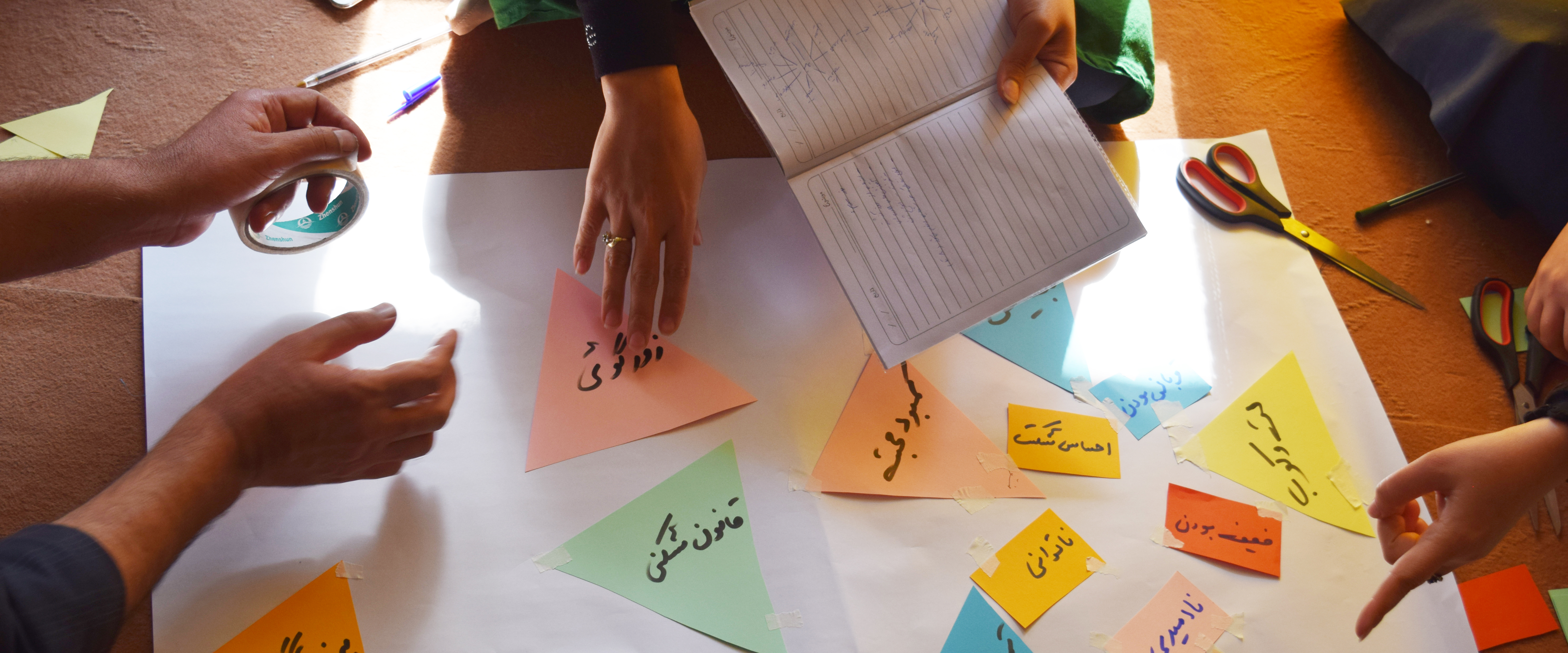“Trainings like these keep me hopeful for the bright future of Afghanistan.”
For Afghanistan, a country that has been at war for more than four decades, peace stands at the forefront of problems to be addressed. War and conflict always have negative impacts on people’s minds and behaviors. People who have lived in or grown-up in war zones are more likely to struggle with mental health disorders like depression, anxiety, or post-traumatic stress disorder (PTSD). We believe that by changing people’s misconceptions about conflict, peace, tolerance, and courage, we can help them to seek peace – starting with themselves, and eventually at a larger scale, resulting in bringing peace at a societal level. Through our peacebuilding project, we helped Homra to become the best version of herself.
Homra, an energetic young woman in one of our partner schools, has seen immense improvements in her character – and her life as a whole – after taking part in our peacebuilding project. In this project she has had the opportunity to learn important skills that can help her to address issues in her life and become a leader. Now, she has a good understanding about conflict – the different types and levels of conflict, the cycles of violence and peacebuilding, how to evaluate conflict, conflict resolution skills (communication), and barriers to communication. In addition to these, she also has a good grip on key life skills, such as empathy, anger, dealing with peer pressure, coping with grief, self-esteem, dealing with failure, bullying, time management, and making positive life choices. By teaching these skills to Homra and thousands of other youths like her, we hope to play a part in their lives and bring long lasting change to Afghanistan.

Homra is an intelligent young woman with a vision for herself, her family, and her country. She is in her final year of high school, and is a top student. When our project first went to her school, Homra was keen to join. “I participated in this class because of my interest in peace,” Homra says. “But fortunately, this class proved to be far better for me than I thought.” This class helped Homra to learn about the roots of conflicts and ways they can be addressed. Now, she has better relationships with her classmates, and she also has better grasp of her society. She has the skills to voice her opinions at home with her family and in other social gatherings. “Trainings like these keep me hopeful for the bright future of Afghanistan,” she added.
Before this class, Homra often felt too shy to share her opinions in gatherings, so she would simply accept the decisions of others. During the peacebuilding lessons, she learned more about who she was, and began to develop her character. Now she can passionately listen to others and share her opinions. “This project completely changed me. Now, I have high self-esteem, and I have more zeal to participate in discussions,” she says. “My classmates always ask me about how I changed. I told them that I was previously using the ‘forcing method’ – forcing others to accept my opinions – and now I know that we should aim to understand each other rather than force one another to follow or accept our opinions, and that problems can be better addressed by understanding each other and working together.
Homra has also seen changes at home with her family. We recognise that family has an intrinsic role in developing the behaviors of children. That’s why our peacebuilding students, like Homra, share all of our lessons with their families – to promote positives change in family life, too. “Whenever I learn a new lesson, I always share it with my family members,” Homra says. “My family is now aware of all the skills I have learned through the Peacebuilding Project.” In the future, we also plan to teach the skills Homra has learned to our students’ parents, in order to foster changes among Afghan communities. By having communities that are equipped with peacebuilding and life skills, we are playing a part in bringing long lasting peace in Afghanistan.
International Assistance Mission’s Peacebuilding Project has been working with teachers and students at schools and universities for the past nine years. We train teachers in peacebuilding skills, so they can then teach these skills to their students continuously, even after the project closure. By having trained teachers in universities and schools, we hope that the impact of our project will spread beyond its activities, eventually impacting the approach to conflict – and seeing opportunities to build peace – at all levels of society.
For finding more information about our Education projects click here!
Want to keep up with the latest from IAM? Like our Facebook page!